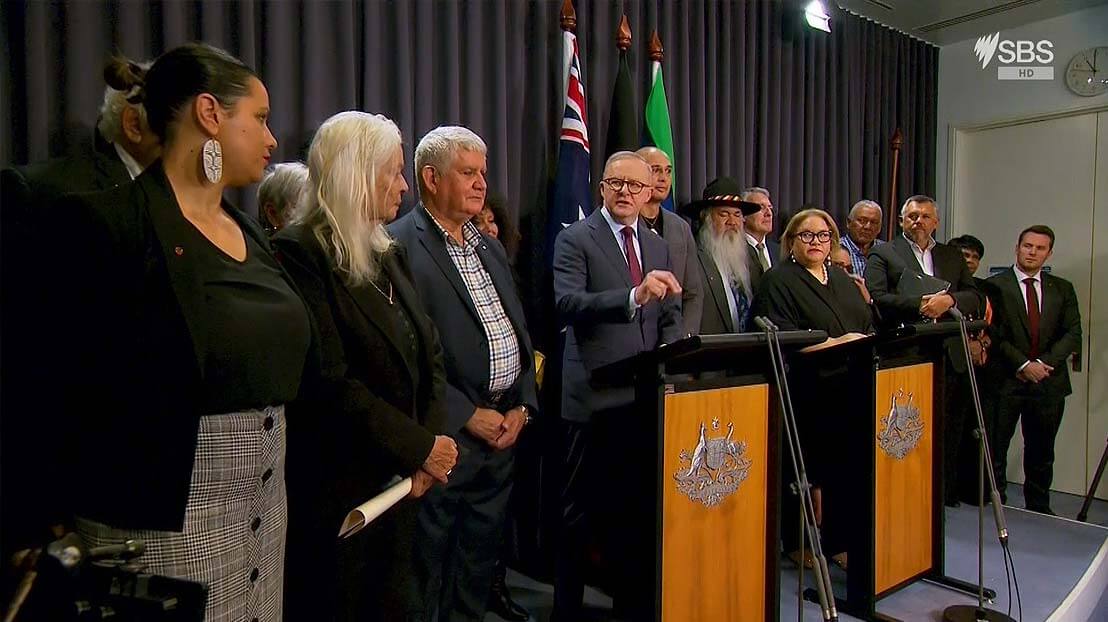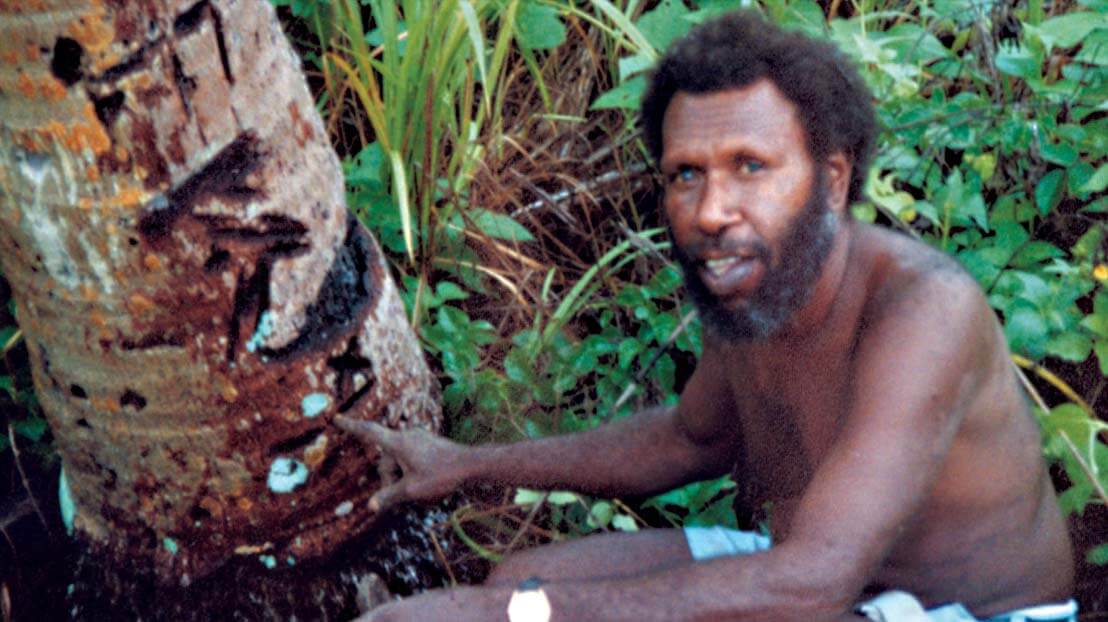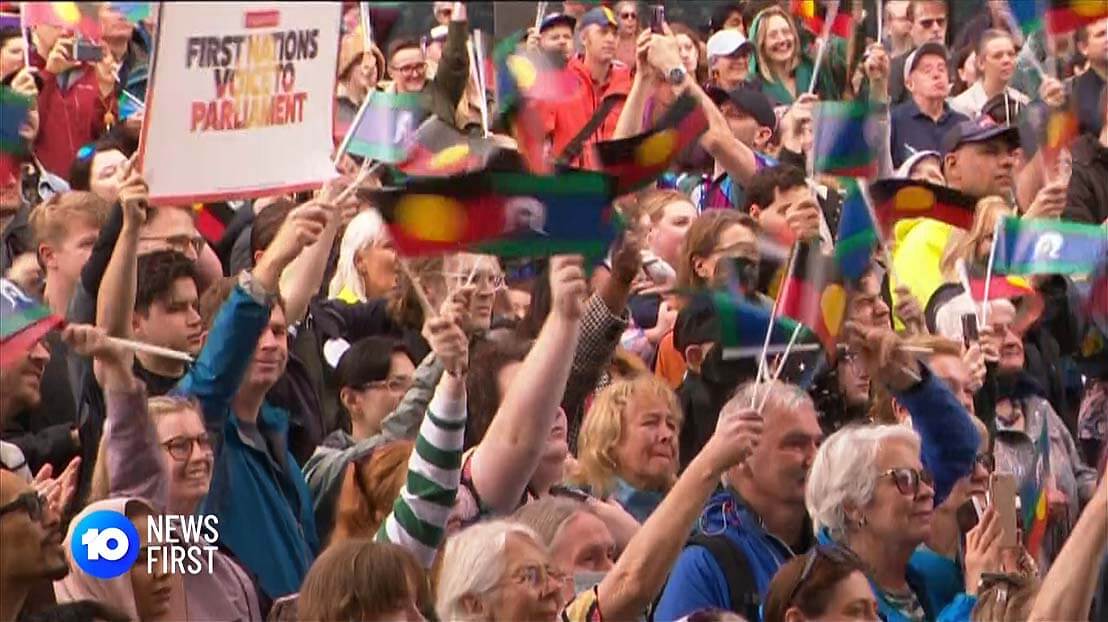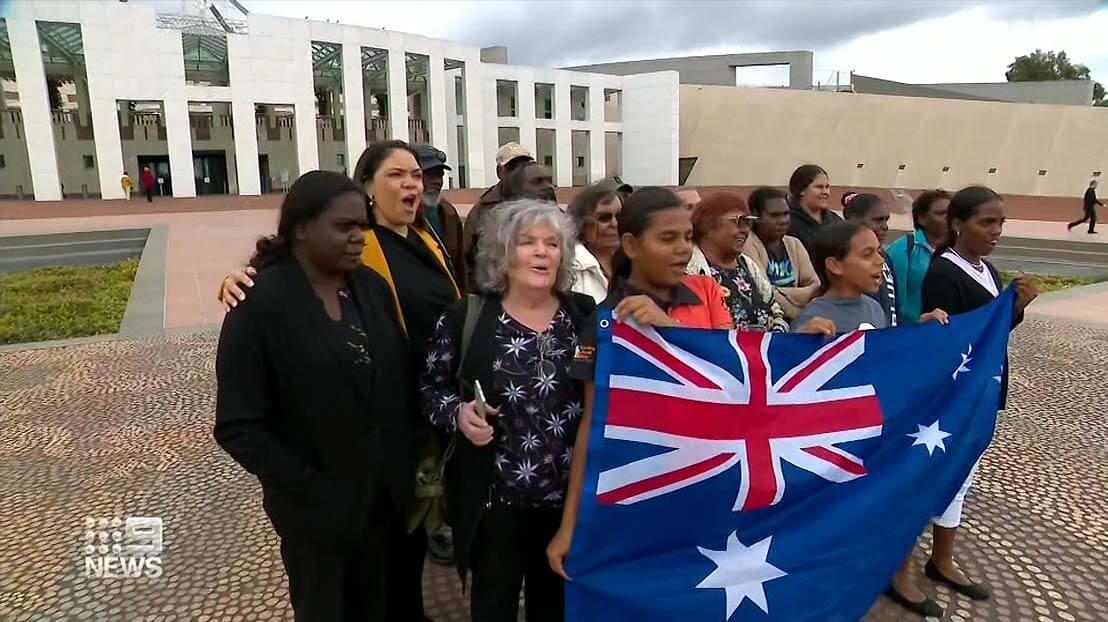TRANSCRIPT:
(This transcript is derived from an automated process. The video recording is authoritative.)
Well, thanks Scott and ladies and gentlemen, one of the things Scott omitted about my history was I am one of the survivors of the team of lawyers who used to work for Johannes Bjelke-Petersen.
Back in the days when after the Whitlam experiment, Queensland led the fight against the centralization of the Fraser government, and I was a advisor to the Special Committee of Solicitors, General Standing Committee, Attorneys General, et cetera.
When we engaged in some huge constitutional issues over areas such as the Great Barrier Reef, Aboriginal Affairs, et cetera, I remained, uh, a fairly conservative person so far as constitutional law is concerned because I'm one of those lawyers who believe that the law is there to be interpreted by the judges, not made by the judges.
So I wanna start my little talk tonight on the basis of let's look at just exactly what was the proposal that the people of Australia had to vote upon, and how would that have been interpreted should it have been passed by the people of Australia?

What were we all told about the Voice?
Now, there's what exactly was supposed to be being put in the Constitution. You didn't find it being spelt out in detail in the media debates, in the talks from all the proponents.
Rather, it was 'the Voice'. And you don't worry about that Parliament sorted out after it's passed and approved by the people. But the reality of life is what this would've done would've been to put a new chapter in the Australian constitution.
Now, the meaning of that chapter was up to the High Court. It doesn't matter what the politicians say, it doesn't matter what the people say. It only matters as to what the High Court says when it is confronted with a case as to the meaning of those exact words that were put into the constitution.
Now you have to look at the High Court and you have to look at its history. And I'll just give you three cases. I want to mention where the high court of Australia has TA made a turn of 180 degrees in the con in the accepted in interpretation of provisions of the Constitution.
In 1920, we had the engineers case where led by Sir Isaacs Isaacs, one of the first great Labor justices of the High Court. We overturned the implied government intergovernmental immunities, which was the basis upon which we entered into our federation in the first place.
In other words, that governments couldn't interfere with the affairs of other governments. The High Court in 1920 just overturned it, and it's from that 1920 case that the steady march of an ever expanding commonwealth government has occurred.
Why? Because frankly, the High Court was stacked through Labor appointments and Isaac led the charge. Now in 1922, uh, 1992, I should say again, well High Court, all of a sudden outta thin air, in the case of Nationwide News, v Willis created this concept that there was an implied right to political communication under our constitution.
Notwithstanding there are no words in the Constitution to that effect. Notwithstanding no one prior to that had ever legitimately mounted the case that that existed. The High Court judges produced it out of thin air and said, well, there's this right of freedom of political communication.

Dividing our sovereignty with Mabo
Again, in 1992, we had Mabo, and Mabo is the case from which the referendum has sprung. And Mabo is one of the most significant cases that it's ever been decided in Australian constitutional history because what Mabo did was it rejected what had been the common understanding of the law of Australia up until that time that Australia was settled by the crown, that the land of Australia was owned by the crown represented by the various states of Australia.
Instead, the Mabo court said that there would be an have to be an acceptance of a traditional custom of indigenous Australians as regards land in Australia. What that in effect does was this, in 1992, the High Court determined that there is now divided sovereignty in Australia, that there is a division that exists between Australia and people who are indigenous to Australia.
Now, the reality of life is judges of the High Court are all human beings. They are appointed by different governments with a hope. And I've been involved in appointments of judicial officers from the High Court downwards over the years.
They're appointed by governments for hope that in their decision making, they will reflect the interests, desires, and concerns of the government that appoint them. Now, judges don't always follow the expectations of the governments that appoint them, but I can tell you that traditionally across Australia, lawyers appointed to the High Court by Labor governments reflect the Labor government's philosophy in their decision making.
And I could go through and analyze the background of each of the judges of the six judges of the High Court who comprised the majority in Mabo and point out the connections that they had all legal, upright, legitimate collections.
But what it does mean is that given the way in which the High Court changes, as the political ebbs and flows of Australia goes on over the years, there is never a guarantee.
There is never a certainty that the judges of the High Court will interpret the words of the Constitution in the same way. And so everything that's put into our constitution has the potentiality to be overturned by future High Court decisions.
Now, let's have a look now at some of the issues with the proposal, and I should sorry, for, uh, not flipping notes. First question is, who are Aboriginal and Torres Strait Islander people as defined in Mabo?
Well, Brennan set out the test membership of the indigenous peoples depends upon biological descent from the indigenous peoples, and on mutual recognition of a particular person's membership by that person and by the elders or other persons enjoying traditional authority among those people.
Now, what does that mean in practice? Well, as we see, and particularly as we see from some of the spokesmen for the Voice proposal, it is very difficult to identify in any physical, intellectual, economic, social, religious or other criteria how the spokesman claiming to be indigenous differ from the broad cross section of the Australian community.
And frankly, if you're going to get a decision that is going to apply for now and forever, if this referendum went passed as people intermarry, and as we know, the genetic lines are increasingly intertwined, not only in Australia but across the world.
Human beings are human beings. How on earth are we going to maintain some biological link about to determine who are these Aboriginals Torres Strait Islander people for whom rights are being given that man and I, if you can do that.
Now, Mabo again raised this question of sovereignty. What this would do is having raised the question of sovereignty in Mabo, this further edition into the Constitution through the Voice would have strengthened the argument of those who say that indeed Australia is not one sovereign nation. It is composed of at least two sovereignty.
But when you consider that Aboriginal and Torres Strait Islander people are themselves split into clan, family, tribal, and other associations, what that would mean would be the question of sovereignty of Australia would become even more divided.
And frankly, when you look across the world and you look at societies where sovereignty is contested, and I merely refer to the Middle East, Myanmar and other places like that, you see the hurt, the pain, and the devastation to those societies that that divided sovereignty works.
I'm one of those people who believes that we are one nation, one people, one Australia. We have to work out our problems ourselves and we shouldn't be divided. Now, one of the other things that you should look at in the proposal was it contained the word "shall," shall is a mandatory term.
Once it's in the Constitution, you can't change it except by the constitutional amendment mechanisms that Scott talked about. And frankly, once the constitution has changed, the concept of changing it back is very remote indeed.
So if the passing, if the referendum had been passed, we would've been stuck with the Voice forever and a day again. And I think if I can go back, uh, I'm losing all these things here.

The Voice and its powers in practice
Uh, one of the big issues was that the ref Voice would've been able to make representations to the parliament and the executive government. Now, just exactly what is the executive government?
That's the extract from the commonwealth constitution. That's the executive government, executive power executive, federal executive council, governor general nurses, estate nurses, to sit in parliament. The fruitful arguments that the lawyers could create over that are enormous.
Now, the question then is representation. What is representation? Well, you could get, uh, I probably missed that out. Representation is a word that me that is very broad. Does representation mean that you have to take it into account?
Who has to take it into account of the parliament and executive government, individual ministers, ministers of state counts, federal, federal executive council, the governor, general exec, et cetera. Now, we already have an established body of administrative law in this country whereby the requirement to take into account under environmental law representations and views on particular issues has been held by the High Court itself to mean that in each case of a particular decision, the minister themselves have to, has to examine the doc, the representation that have been made, cannot rely upon the advice of their public service, cannot take the views of the cabinet as a whole into account, but must make that individual decision themselves.
So if we'd had the Voice in the Constitution, we'd have been opening the floodgates of litigation in relation to determinations as to what representations can be made, how they can be made, and what weight should be given to them.

Recent High Court ruling on "taking into account"
There has just been a recent case in the environmental area where the High Court ruled that because the representations hadn't been stapled together and attached to the cabinet minute, that therefore they hadn't properly been taken into account by the relevant minister.
Lawyers would have a field day about that. So we dodged a bullet.
Quite frankly, Australia dodged a bullet by this decision to reject the Voice proposal. We have problems in our society, we have problems with the indigenous community in bringing them and giving them a life that is as equivalent to that of the rest of Australia.
Creation of these structures, however, is not in my view the answer, Scott is correct. However, we have to avoid having the decision on the Voice referendum, be reconsidered, be reexamined, be written down already the uh, activists are out there campaigning to try and undermine the result of the Voice.
Concluding remarks
I just want to finish by just reading you two little comments. One's from Megan Davis, one of the prominent activist campaigners for the Voice: Thinly veiled racism was given respectability and wide ventilation through conventional media because of its slavish adherence to both sides, a false equivalence approach to reporting, which in turn gave license for it to run even more rampant on social media.
And Marcus Stewart, again, another one of the prominent people who campaigned Yes, he said to the ABC News that the campaign struggled with our messaging and got no cut through for most voters.
He said the Voice proposal was perceived as niche and bespoke. The general Australian community couldn't comprehend what exactly it was. What a downer for democracy. When you have all Australian states, 60% of the Australian voting population rejecting a proposal.
And we are told we just didn't understand what it was all about. So I'll shut up here now and wait for questions and answers.






